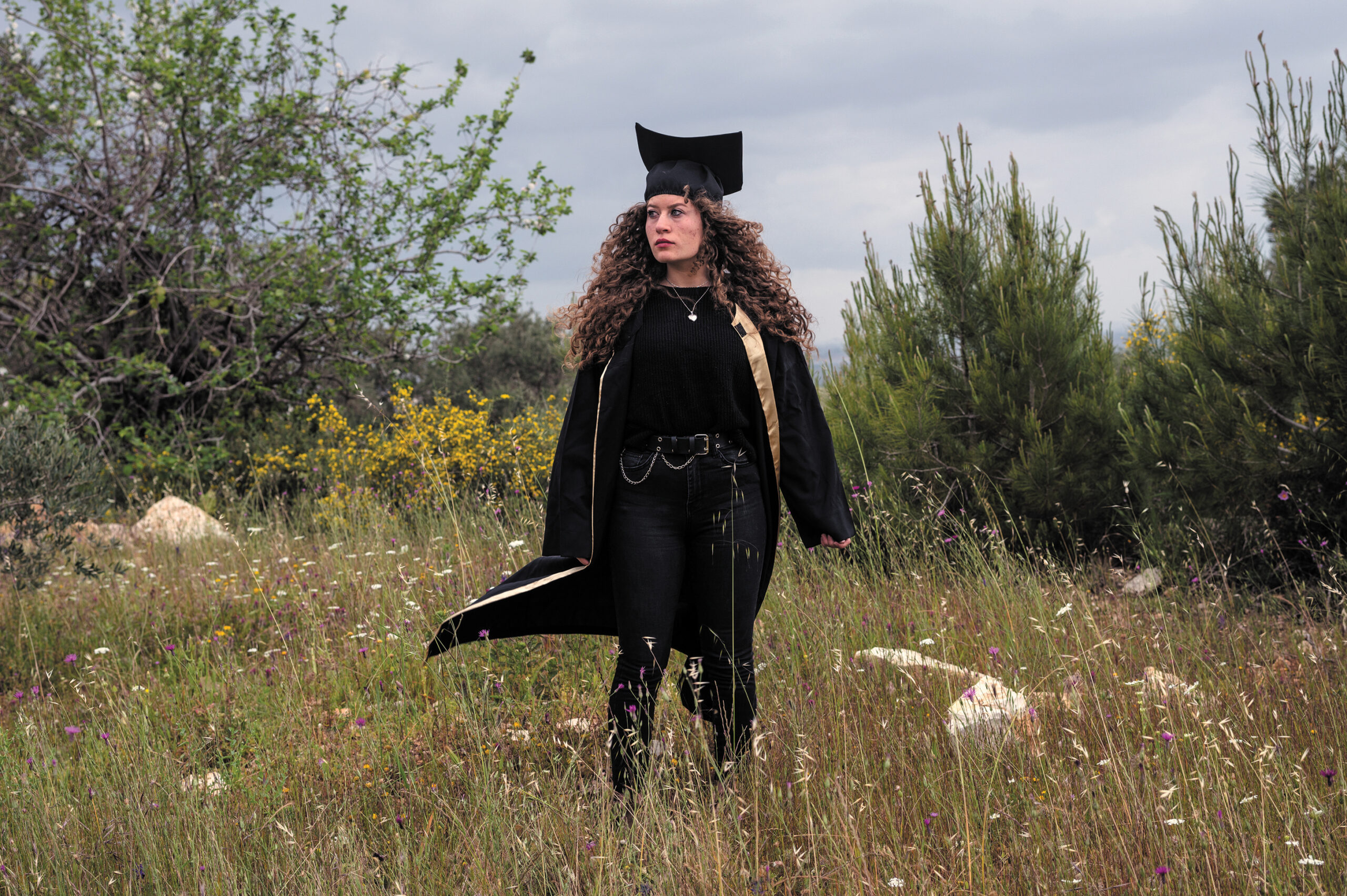I COULD BARELY SLEEP the night before I was released. A mixture of excitement at returning home to my family and guilt for leaving behind the girls kept my mind racing. To add to that, in the two times he was able to visit us in prison, my father informed me that my story had made waves internationally and that I should prepare myself for a deluge of media attention once I was released. That’s why, a couple of days earlier, I had sought Khalida’s guidance on how to address the press once I got out. I wanted to make sure I’d be able to properly relay the messages of my fellow prisoners to the media. Khalida coached me on how to arrange my thoughts into concise talking points. As helpful as she was, there was no way I could have adequately prepared for what I ultimately encountered.
I expected I’d have the morning to say my goodbyes and have a proper send-off, as prisoners were usually sent home in the early afternoon. But shortly before the 5:30 a.m. head count, a guard came by my cell and said, “Ahed, get dressed.” I put on the outfit my family had sent for me to come home in and stood with the rest of the girls for the count. Once it was over, the guard told me it was time to go. I turned to the girls, who wept. They looked at me as if it were the last time we’d ever see each other. Some of them still had over a decade left to their sentences. It pierced my heart to leave them like this, but I held my tears back and hugged them one by one. They told me to stay strong and that they were putting their faith in me to be their voice on the outside.
I left my cell and stood in the narrow corridor dividing the two rows of cells. All the cell doors were closed, but women and girls stuck their hands through their narrow slits, the same slits we’d get handcuffed through before going to court. I walked by each door and held their hands, and we said our goodbyes without actually seeing each other. My mother was with me and also said her farewells to the other women in this manner. When we got to the door of Khalto Yasmeen and Khalida’s cell, Khalto Yasmeen asked the guard to open it. The guard complied, and I entered it for the very last time. As I hugged them both, I reflected on the lessons they’d taught me over the past few months. It wasn’t just the international law course that had expanded my consciousness. By their examples, Khalida and Khalto Yasmeen had taught me how to be a strong woman who advocated for herself and spoke truth to power. They had helped me understand the critical role women play in our society and in our struggle for liberation. Women make up half our society, and they raise the whole of it. We have to ensure that they’re strong and empowered with education and political awareness in order to raise the next generation, who will liberate Palestine.
Both Khalida and Khalto Yasmeen cried as they embraced me and my mother.
“You’ll remain our voice and our representative,” Khalida said to me. “Don’t give in to anyone, and don’t let anyone discourage you from reaching your goals. We know who you are and what you’re capable of.”
“I promise I’ll try to make you proud,” I assured her. And I meant it.
“Come on; it’s time to go,” the guard called out to us.
For all the difficulties I’d encountered over those eight months, these final farewells remain one of the most painful memories of my time in prison. It wasn’t just that I would miss these girls and women I’d become so close to; it was knowing that the state was working every day to grind them down, demoralize them, and break their spirits. And instead of being allied with them in the fight, bound in our collective care, joy, and resistance, I was stepping away from them and toward my own freedom. Every goodbye felt like a grievous loss. I have not, to this day, recovered from them.
The guard took us to a new cell, where we had to wait until it was time to leave Hasharon Prison—we hoped forever. Once that time came, the guards tried to take away all my personal belongings, including all the letters, art, and jewelry the girls had given me. My mom and I sat on the ground in protest. We told them they could send us back to our cells if they wished, because there was no way we’d agree to leaving without those things. I cherished these mementos from my time in prison—they had become sentimental artifacts from an important chapter in my life story, one that had forever changed me. Plus, I was carrying letters the girls had written to their families, which I had promised to send out for them. Some of the girls hadn’t been visited by their parents in over four months, and I refused to let them down. Seeing that we were not relenting, the guards finally agreed to let us take all our things with us.
When Palestinian prisoners are released, Israeli authorities typically drop them off at a checkpoint, where their families excitedly wait to greet them and bring them home. For weeks, I had fantasized about my victory car ride back home, where I’d extend my body out the window and hold up my fingers in a peace sign while taking in the fresh air I had long been deprived of. I expected we’d be dropped off at the nearby Jabara checkpoint, where most prisoners released from Hasharon are taken; the Israeli authorities had even informed my father that that’s where we’d meet. But soon after they gave him this information, they changed their plans and told him we’d be dropped off at the Rantis checkpoint instead, about an hour and a half away from Jabara but closer to the village. What ensued were several hours of chaos and conflicting information that ended up sending my father, many of my family members, and dozens of news crews on a wild-goose chase, racing back and forth between the two checkpoints.
Meanwhile, they had shackled my mom and me at our wrists and ankles and blindfolded us in the military vehicle. We weren’t allowed to speak to each other, and we had no idea where we were. When the jeep finally stopped moving, the soldiers told me to stand up. They positioned me with my back to the door, took off my blindfold, and began to remove the handcuffs. I could hear a commotion outside the vehicle, people shouting. The soldiers turned me around and opened the door. I stepped out of the jeep, and the first person I saw, other than the uniformed soldiers surrounding the vehicle, was my father. I ran over to hug him, excited to finally reunite. I realized then that we weren’t at a checkpoint at all, but rather, at the entrance to Nabi Saleh. For reasons that remain unclear, the soldiers had decided to drop us off at the village. I wouldn’t get my joyride after all, but I was happy to finally be home.
In addition to our friends, activists, and countless journalists, everyone in the village was there to give us a hero’s welcome. Our friends and family waved the Palestinian flag and held up posters with my face on them. My father draped a kuffiyeh around my shoulders.




